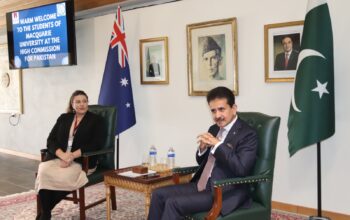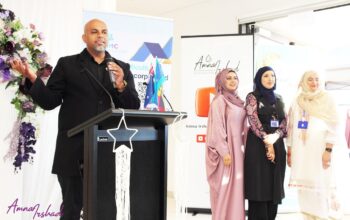Dozens of Sydney COVID-19 testing sites shut temporarily
More than two dozen COVID-19 testing clinics have been temporarily closed across Sydney as providers struggle to keep up with sustained high demand amid ongoing squabbles over rapid testing.
Private company Australian Clinical Labs on Monday announced the closure of 28 of its 29 sites “effective immediately”, leaving open only its Bella Vista clinic for paid international travel tests.
Sites at Castle Hill, Charlestown and Parramatta are due to reopen on Tuesday, according to the company’s website, but the majority remain closed.

“Clinical Labs temporarily closed some testing sites in NSW,” the company said on its website on Monday evening.
“These closures have been necessary due to the significant increase in testing volumes across the state.
“Many of these sites will progressively reopen from Tuesday 4th January.”
Even radical changes to close contact definitions and testing recommendations, and repeated pleas from authorities for people to avoid PCR tests unless absolutely necessary, have failed to stem the long queues around Sydney.
New South Wales reported 20,794 new cases on Monday, along with a a sharp jump to 1204 COVID-19 patients in hospital, 138 more than on Sunday.
Lack of availability and surging prices for the rapid antigen tests (RATs) meant to replace PCR tests in many instances has only made the situation more complicated.
One Sydney service station was charging $30 for one test on Monday and many more were sold out.
There are increasing calls for federal and state governments, which have footed the bill for more-expensive PCR tests throughout the pandemic, to make RATs available free on a large scale.
Speaking to Today on Monday, Prime Minister Scott Morrison defended Australia’s testing program, saying free rapid antigen tests were available at testing hubs.

“We’re now in a stage of the pandemic where you can’t just make everything free,” he told Sunrise.
“When someone tells you they want to make something free, someone’s always going to pay for it, and it’s going to be you.”
But experts such as Grattan Institute health program director and former Alberta Health Services CEO Stephen Duckett said that thinking was flawed.
They argued the public health benefit of providing free rapid tests would outweigh the cost.
“More people will use them for sure,” Mr Duckett told 9News.
“That means people who are infectious now and haven’t got any symptoms will actually know they are infectious and stay at home which will actually reduce the spread.”
The economist slammed a lack of foresight, comparing the latest testing issues to the bungled early vaccine rollout, and called for Australia to follow the United Kingdom’s lead in not just supplying free tests but recording the results.
Health Minister Greg Hunt said it was “common sense” not to provide an “an infinite supply of a free good”, arguing it would be impossible to meet demand.
“If there were an unconstrained flow of completely unpriced products, so as there was an infinite supply to an infinite number of people, then of course that demand couldn’t be met,” he said.
But University of New South Wales economics professor Richard Holden said that logic was faulty and Mr Hunt’s explanation was “gibberish”.
“Since August @SHamiltonian [Assistant Professor of Economics Steven Hamilton] and I have said RATs provide more information and empower people to make better choices for themselves, their family, and their community,” he said, on Twitter.
“As ever, the gov. dithered. Now trying to cover up their obvious mistake. Even Bojo [UK Prime Minister Boris Johnson] got this right.”









